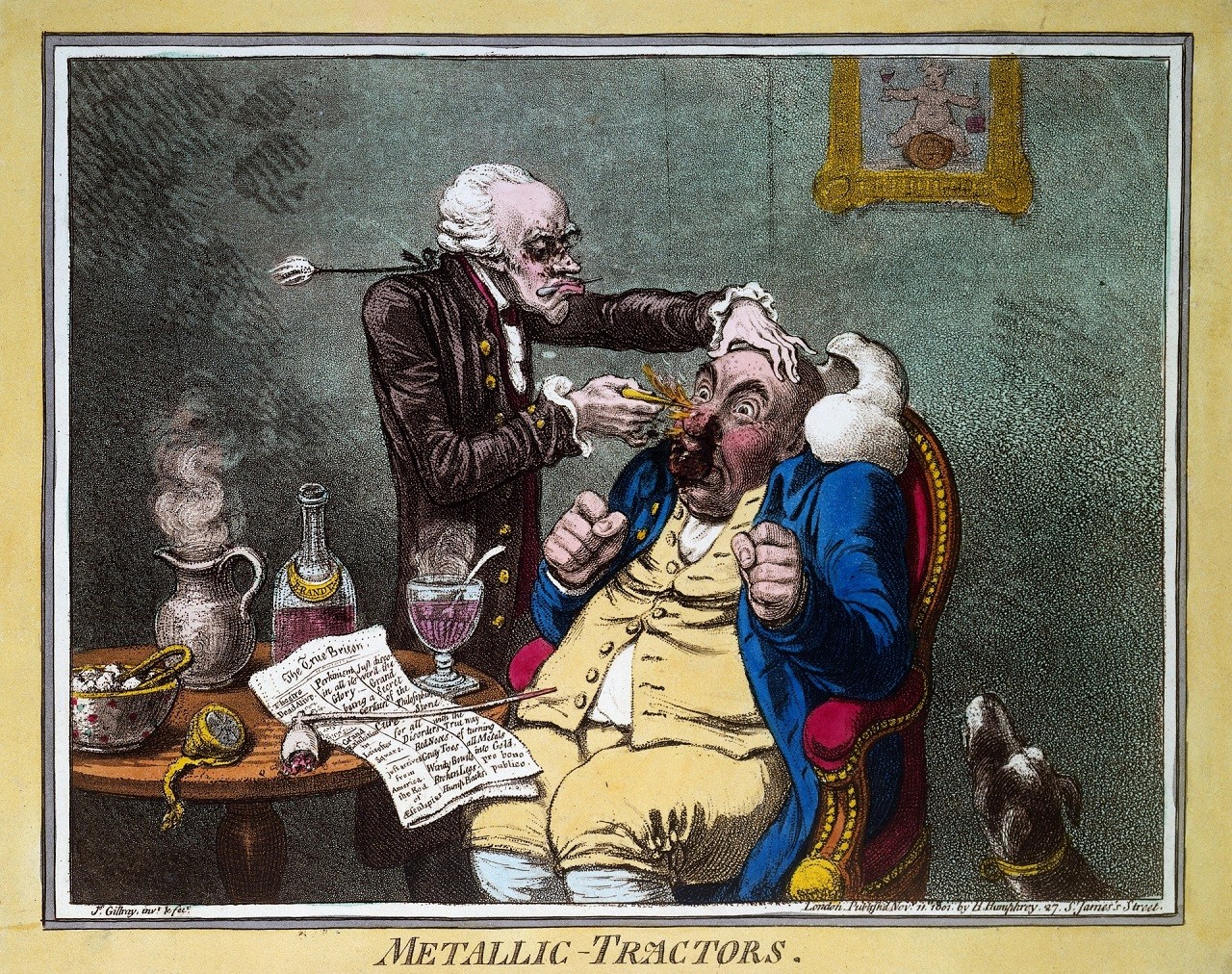Date & time
5 p.m. – 6:30 p.m.
A public lecture by Prof. Katrin Solhdju, University of Mons
This event is free
Engineering, Computer Science and Visual Arts Integrated Complex
1515 St. Catherine W.
Room EV 10.625, Milieux Institute
Yes - See details
 "Metallic Tractors," Elisha Perkins, Wellcome Library, London
"Metallic Tractors," Elisha Perkins, Wellcome Library, London
When it comes to alternative medicine, we are called upon to make clear decisions: Either you believe (in them), or you know (better). Either you adhere to evidence-based science or you let yourself be seduced by the mere placebo effects of quackery.
This talk starts from the hypothesis that such alternatives must be taken for what they are: infernal, in the sense that they are all too often unable to inform good practices. Going back to the debates around charlatanism in the USA around the end of the 19th century, I will re-examine legal efforts to restrict therapeutic practices to those holding medical degrees, focusing especially on testimony provided by the psychologist and philosopher, William James.
Following in James’ footsteps, I will explore some of the contexts in which the “horror of being duped” is able, not only to produce ignorance, inaccurate knowledge, or inadequate therapeutic practices but worse, to generate a “thinning out” of reality itself. The question then is the following: What might the antidote to this multilayered modernist nightmare look like and what might it be made of?
Katrin Solhdju is a senior researcher at the Fonds national de la recherche scientifique (FNRS) and a professor at the Institute for Sociology and Anthropology at the University of Mons in Belgium. She is a member of the Groupe d’études constructivistes (GeCo) at Université Libre de Bruxelles, as well as a co-founder of the collective Dingdingdong. Institute for the co-production of knowledge on Huntington’s Disease. She is the author of two monographs: Testing Knowledge. Toward an Ecology of Diagnosis (2021) and Selbstexperimente. Die Suche nach der Innenperspektive und ihre epistemologischen Folgen (2011).
This event is co-sponsored by Concordia’s Centre for Interdisciplinary Studies in Society and Culture (CISSC), the Media History Research Centre, the Milieux Institute for Arts, Culture, and Technology, and McGill University's Department of Social Studies of Medicine.
For inquires, please contact: jeremy.stolow@concordia.ca
© Concordia University